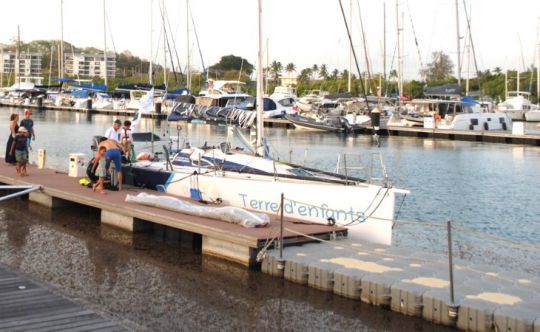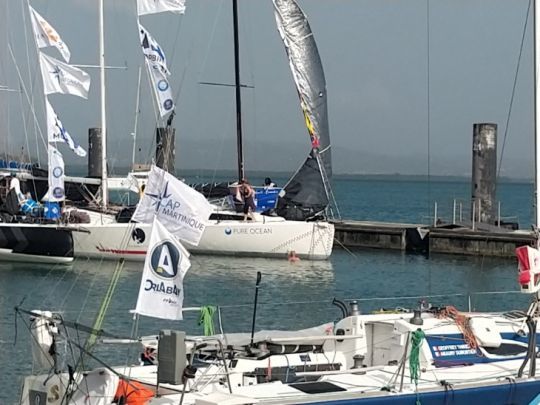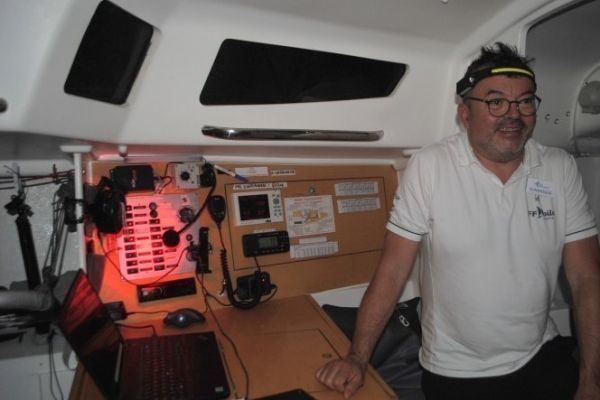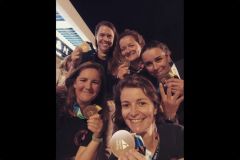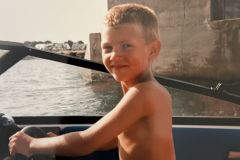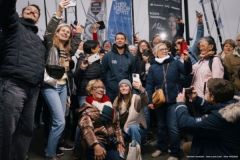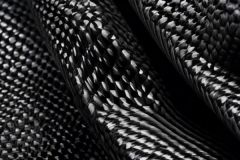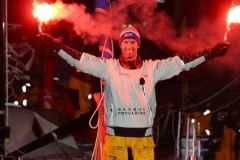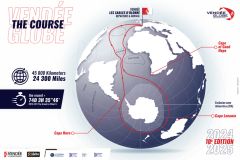We never tire of watching the joy and emotion of the skippers as they cross the finish line of an ocean race. Behind these unique moments lies a carefully orchestrated protocol to offer the best conditions for the skippers, as well as the most beautiful images for the public. Let's take a look back at the highlights of the 2024 edition of the Cap Martinique, as the last competitors have just crossed the line.
First meeting with the yacht and skippers
Saturday, May 4, 2024. The estimated times of arrival (ETAs) have been announced and the first boat enters the bay of Fort-de-France. At around 10 pm (local time), it's time for the organization and production teams (cameramen, photographers) to board the launches to meet the skippers. They are often the first human contact for these sailors, who have spent more than 20 days alone or in pairs during the transatlantic race. In the dark of night, it's not easy. As soon as the sailboat comes into sight, we set a course. As it gets closer, we finally make out two silhouettes. The first applause and congratulations escape; in return, a broad smile is returned. Amaury Dumortier and Geoffrey Thiriez will be the first to cross the finish line at 22:41 local time.
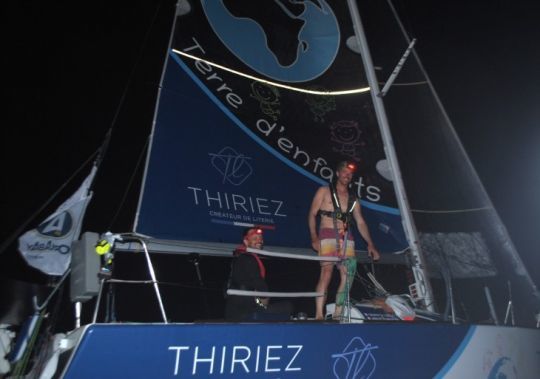
Conditions are ideal for capturing these moments. Following the wake of the yacht, sometimes on the port side, sometimes on the starboard, we try to juggle with the spray, the jolts and the spotlights, to take a few shots without dazzling the skippers too much in their final push.
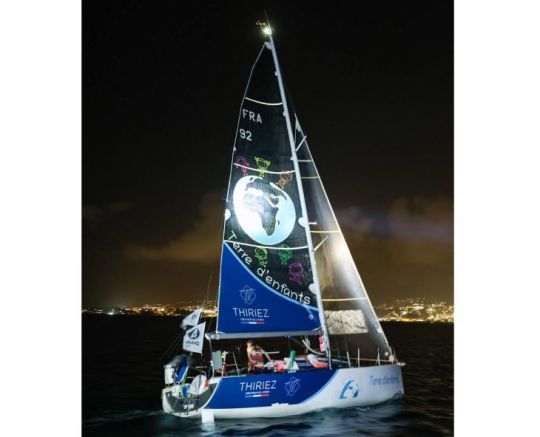
They lend themselves to the game, waving to us and staying focused until the final stage: crossing the line between the race committee boat and a red buoy.
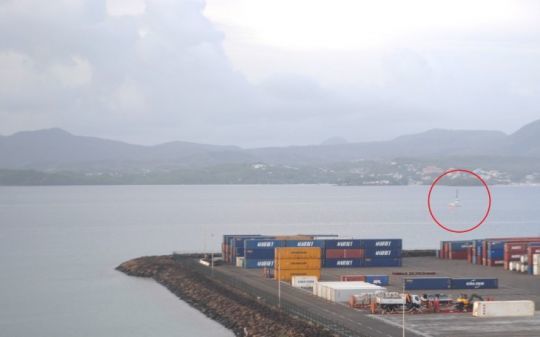
When the horn sounds, it's an achievement. The two skippers have done it! The water, usually so calm, is transformed into a lively place, where the cheers of the families on board a speedboat, who have come specially from France to support them, resound.
Heading for the pontoon
As they approach the reception pontoon, the skippers, who have just completed the 3800-mile race from La Trinité-sur-Mer in Brittany to Fort-de-France in Martinique, can finally lower their sails before docking. The long-awaited moment of setting foot on land offers them a well-deserved rest. Then it was time to meet the public, families, officials, journalists and organizers who had come to greet them. Barely realizing the feat they have just accomplished, the skippers are immediately greeted by applause, smiles and, for some, tears. Each arrival is unique, with its own set of anecdotes to share. Amaury Dumortier and Geoffrey Thiriez tell us: '' We haven't had any major problems. Our biggest problem was losing a winch crank. It may not sound like much, but we only had one left and we had no right to lose it. [...] Twenty days at sea is a discovery. We'd never spent more than 3-4 days at sea in a row. [...] It's all about long-term management, both of sleep and of our duo, because we're so different. Sometimes things get a bit choppy, and that's normal. [...] It's an enormous source of pride to bring this place back to the club. The Cercle de la Voile des Flandes is a very small club, on a pond, and in this club, there are two who have done the Route du Rhum, two who have done the Cap-Martinique, a crew doing the 470 world championships, and us coming first in the Cap-Martinique. That's incredible for a tiny inland waterway. ''
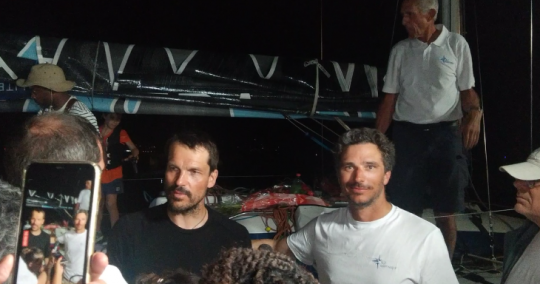
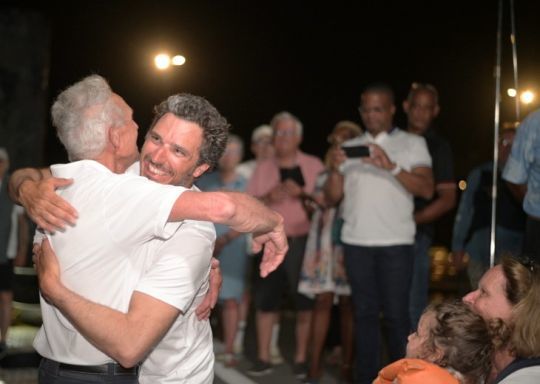
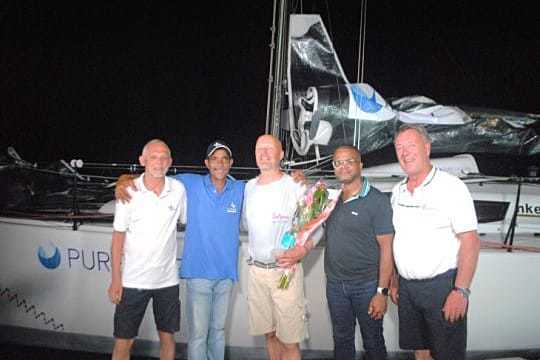
Final stage validation
Meanwhile, slipping away from the crowd, Dominique Flayac discreetly climbs aboard. He's here to validate the final stage of the race: the lead check. We accompany him on Ludovic Gérard's boat, the first solo in real time. '' The management, in collaboration with the race committee, has decided that there will be no engine propeller sealing in this edition, as all the boats have different propeller systems, which would make it relatively unfair to seal one system or the other he explains. Lead is found in diesel fuel, emergency water, life rafts, engines and anchors. He continues: '' A plastic seal prevents these elements from being removed from their original position. This prevents skippers from using this material for matting. Some items weigh up to 30 kg. By grouping them together on one side, the boat can be heeled over to the right side for greater speed. If a lead breaks, a penalty is imposed. dominique checks that everything is in order before validating the race time.
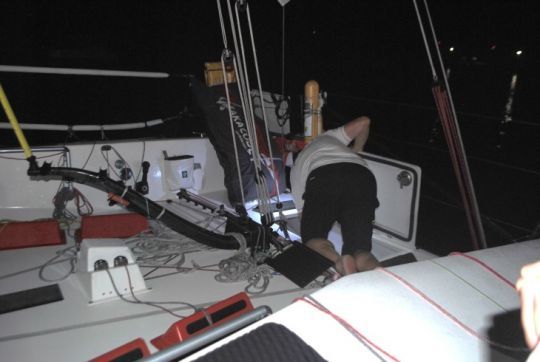
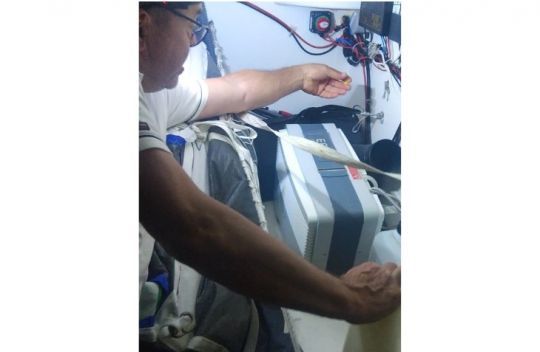
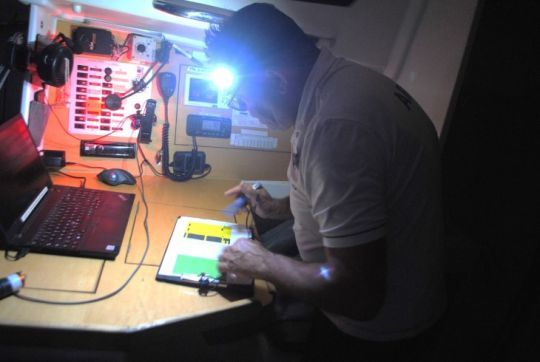
Making room for others
After the greetings, it's time to give way to the next group and head for the pontoon designated for arrivals.
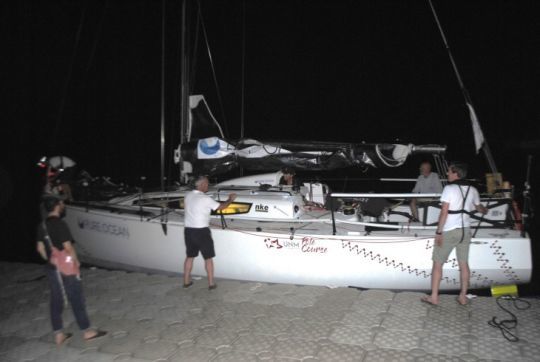
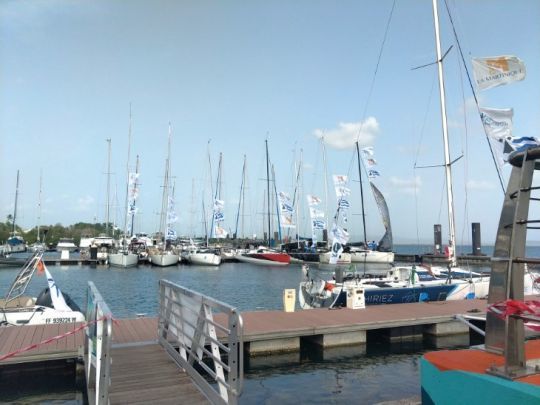
No sooner has one yacht finished its race than the next ETA is underway. Only a few hours' rest are possible for the organizing team and journalists; then it's off again, we board a launch to go and meet the next ones, and so on. Thibault Derville and Jean-Philippe Cau, organizers of the Cap Martinique, haven't slept much in the last 24 hours, but they're on the alert to welcome the 69 competitors. On the reception pontoon, a group of visitors is already getting ready to welcome the next arrival.
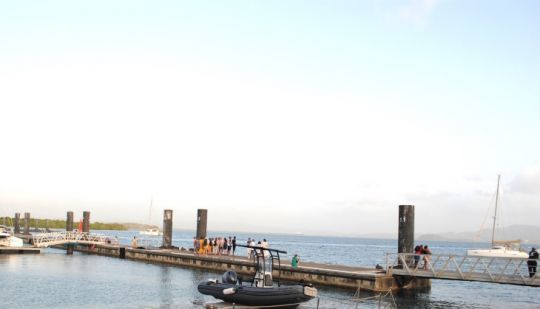
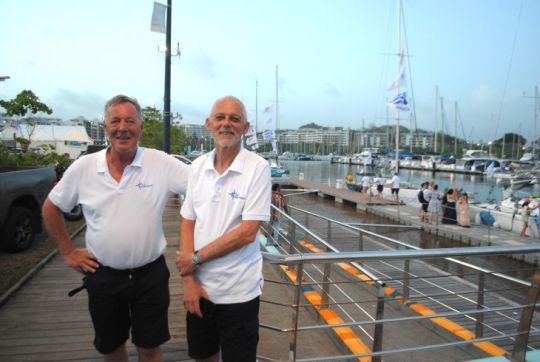
One more turn in the bay
As a result, some of the boats are kept waiting a little longer by visitors at the welcome pontoon. After finishing the race, Gérard Quenot and Bertrand Daniels, winners of the two-handed category on corrected time, invite us to take a stroll around the bay, while waiting for the sun to rise. It's 4:20 a.m. (local time) on May 5, 2024: they've arrived at night and remain tireless, despite more than 20 days at sea. With the first rays of sunlight, we get a clearer view of the yacht and its skippers maneuvering. An opportunity to take a few closer shots.
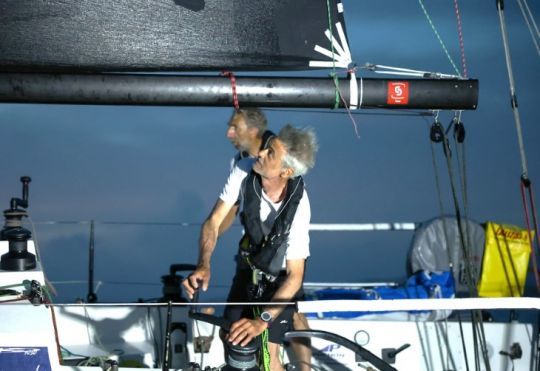
And the next day?
The skippers can now enjoy their arrival to the full over a local lunch featuring the traditional Martinique Ti-punch. Before enjoying the beauties of Martinique, they still have to tidy up the yacht, scrape the hull, rinse the sails and dry them before stowing them away. Many of them will be setting sail again in cargo ships in a few days' time.
